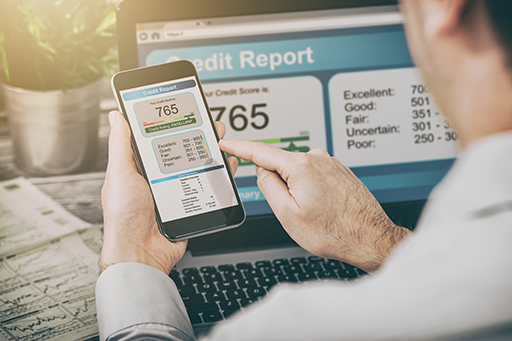3.2 How to boost your credit worthiness
There are a huge number of ways for you to take control of your credit file and therefore your ability to get credit in the future.
First – as mentioned earlier – check your credit reports at least once a year.
This is a vital step. If information held on the reports is incorrect, you could end up having applications for credit declined as a result of errors. Ideally access the information on the reports of the ‘Big 3’ agencies – Experian, Equifax and TransUnion. You might be surprised to find the variations in the information held about you between these agencies. If there are errors, get them corrected.
In particular, do check your credit reports before any major applications (for example, before applying for a mortgage) and if you have an application for credit rejected.
Of course, having a rejection means you’ve applied, and each application puts a mark on your file. The odd one isn’t usually a problem, but lots of applications can make you seem less attractive to lenders as it may make it appear that you’re reliant on credit. So, get errors corrected immediately as they may mean you get continuously rejected, and you want to stop that spiral.
As well as checking your reports, make sure that you’re registered on the electoral roll or, if you’re not eligible to vote in the UK, that you have proof of residency. The electoral roll is updated annually. Staying registered is vital because if you’re not on the roll, it’s unlikely that any institution will want to lend to you.
Next, check whether you’re linked to someone financially, as their credit score can affect yours.
Being ‘linked’ is not about whether you live together or are married, it’s simply whether you have a joint financial product such as a joint bank account or mortgage (but not a ‘joint’ credit card as there’s no such thing – if someone else has a card on your account it’s still a sole account).
If you are financially linked to someone on any product, that means their history is considered as part of assessing whether to accept you. Even just a joint bills account with flatmates can mean you are co-scored.
Therefore, if your partner or flatmate has a poor history, keep your finances completely separate.
If you split up with someone you’ve had joint finances with (or just moved out from your flat-share), once your finances are no longer linked, write to the credit reference agencies and ask for a notice of disassociation. You can also find the forms online.
If you have never been linked to someone financially, you still need to be alive to these risks since you may become linked in the future.

